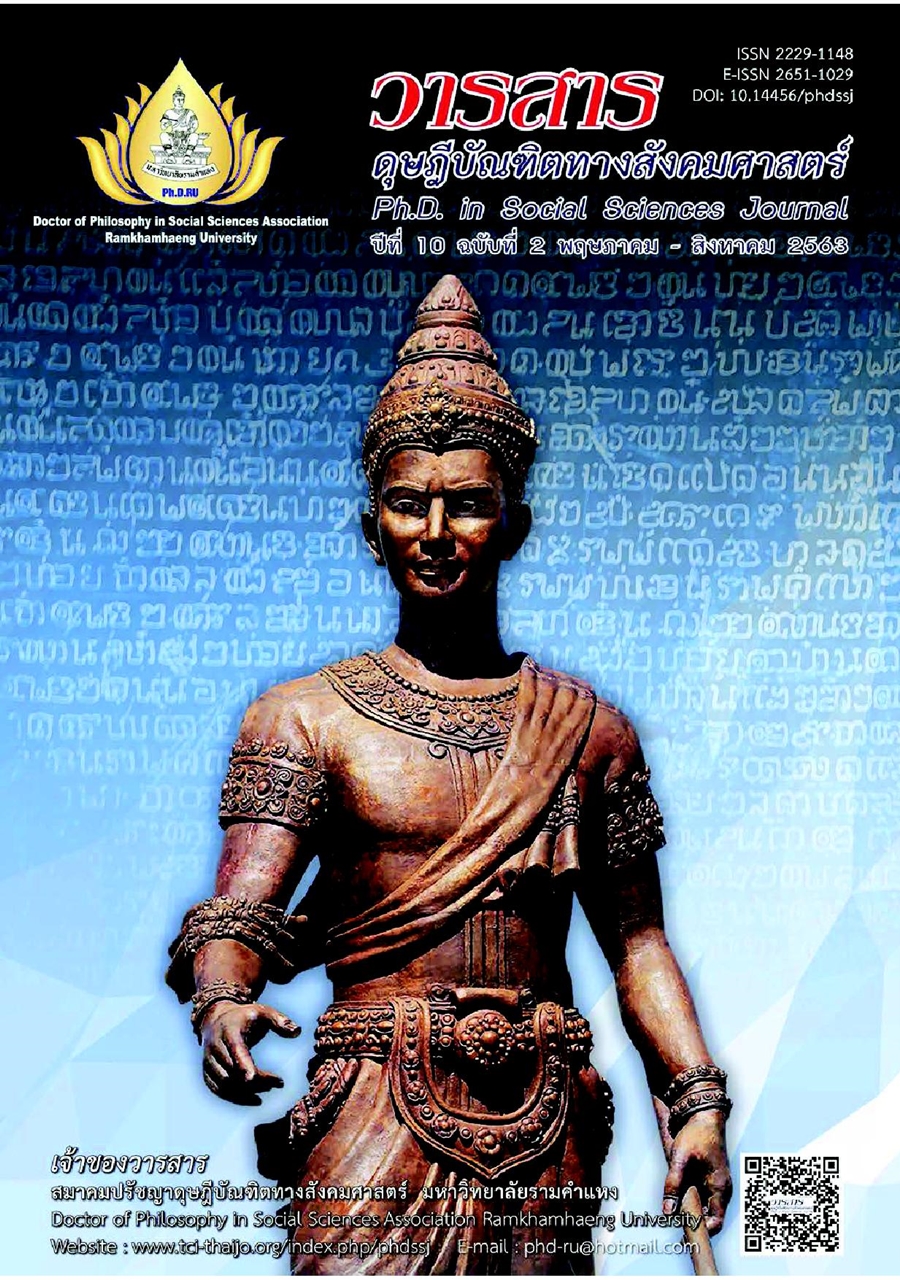A Study of the Pedagogy Competency of Student Teachers
Main Article Content
Abstract
This research article are objectives examines to analyze the basic information on pedagogical competencies of the students in the faculties of education, to develop the component and measurement the pedagogy competency of the students, to construct a tool for pedagogical competence assessment, and to evaluate the students’ pedagogical competencies. The sample groups are consisted of (1) The 17 experts who provided the information on the components and indicators of the pedagogy competency of the students from the faculty of education. (2) 400 students from the faculties of education of 3 university. Instruments used in the research are consisted of Expert Interviewing form, Self-evaluate competency measurement form. Data of the study were analyzed by means of content analysis, frequency counts, percentages, means, median, standard deviations, Interquartile Range (IQR), t tests, one-way ANOVA, Scheffe’ tests and Pearson correlation coefficients.
The result findings can be categorized into 4 parts. Firstly, it was found that there were 12 aspects of pedagogical competencies of the students in the faculties of education. Secondly, based on Bloom’s Taxonomy of Learning Theory, it revealed that the pedagogical competencies of the students from the faculties of education could be divided into 3 main groups with 83 indicators. Thirdly, based on the data from the self-report form on perceptive competencies for the students, it was found that their competencies could be divided into 12 aspects with 83 indicators. Fourthly, it revealed that the pedagogical competencies of the students in the 12 aspects as the aforementioned could be divided into 2 levels: high and moderate.
Article Details
Academic articles, research articles, and book reviews in the Ph.D. in Social Sciences Journal are author’s opinions, and not the publisher’s, and is not the responsibility of the Ph.D. in Social Sciences Journal Philosophy Association, Ramkhamhaeng University. (In the case that research is done on human, the researcher has to be trained in Ethics for Doing Research on Human Training and has to produce the evidence of the training).
References
Bloom, B. (1959). Bloom’s taxonomy: Learning domains. Retrieved from https://www.businessballs.com/self-awareness/blooms-taxonomy
Dejakupt, P., & Yindeesuk, P. (2016). Learning management in the 21st Century. Chulalongkorn University Press. [In Thai]
Dewey, J. (1916). Democracy and Education: An introduction to the philosophy of education. The Free Press.
Gedsero, S. (2009). A Study of Problem and Requirement on Traniner’s Competency of Department of Skill Development, Minister of labor. Thesis Master of Science in Industrial Education, King Mongkut’s University of Technology Thonburi. [In Thai]
Jiravarapong, P. (2010). ICT integration for teachers. Journal of Education Naresuan University, 12(2), 157-167. [In Thai]
Joyce, B. R., Weil, M., & Calhoun, E. (2015). Models of teaching (9th ed.). Pearson Education.
National Institute for Development of Teachers, Faculty Staff and Educational Personnel (NIDTEP). (2012). Development of teachers and educational personnel. Retrieved from http://www.nidtep.go.th/2019/index.php [In Thai]
Office of the Education Council. (2018). IMD world competitiveness yearbook 2018. Retrieved from http://backoffice.onec.go.th/uploaded2/Outstand/201806/IMD2018.pdf [In Thai]
Paje, S. (2010). Teachers development under the Educational Reformation Performance in the Second Decade (2009-2018). Retrieved from http://www.dla.go.th/upload/ebook/column/2012/7/1860_5273.pdf [In Thai]
Silpakorn University. (2012). Bureau of academic service. Silpakorn University, Faculty of Management Science. [In Thai]
Sivapalan. (2017). Ethics for university teachers. Retrieved from http://slideplayer.com/slide/1493183
Society of Certified Adjunct Faculty Educator. (2011). Core competencies. Retrieved from https://www.eclearningil.org/hero/resources/society-certified-adjunct-faculty-educators-core-competencies
Yamane, T. (1967). Statistics: An introductory analysis. Harper and Row.
Yulianti, F. (2012). Teaching english vocabulary to elementary school-aged children through a modified hop-scotch game named portek (portable engklek). English Education Journal, 2(2), 195-205.


